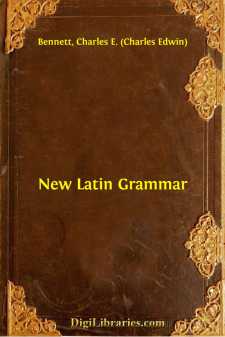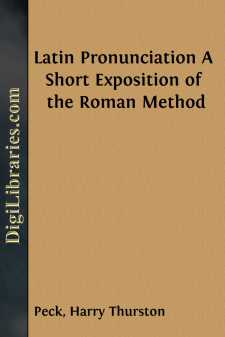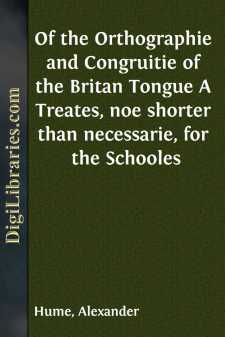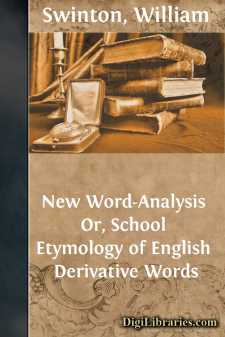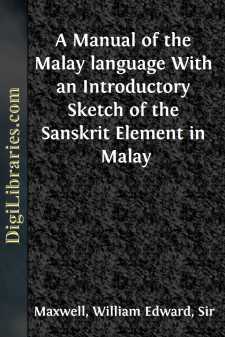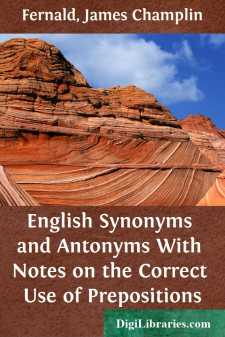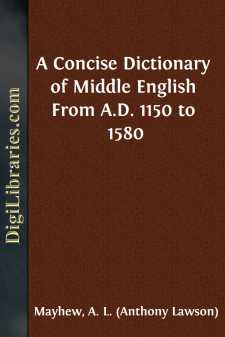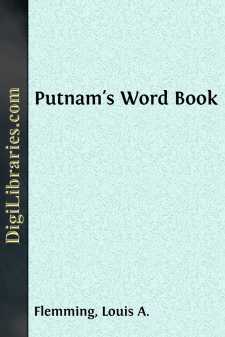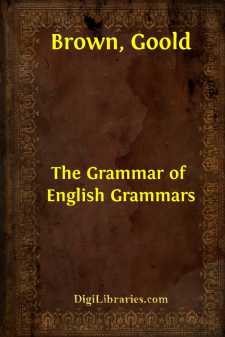Language Arts & Disciplines
Language Arts & Disciplines Books
Sort by:
PART I. SOUNDS, ACCENT, QUANTITY. THE ALPHABET. 1. The Latin Alphabet is the same as the English, except that the Latin has no w. 1. K occurs only in Kalendae and a few other words; y and z were introduced from the Greek about 50 B.C., and occur only in foreign words—chiefly Greek. 2. With the Romans, who regularly employed only capitals, I served both as vowel and consonant; so also V. For us,...
more...
INTRODUCTORY. THIS short manual is primarily intended for those who, being interested in the study of Latin, have accepted the Roman method of pronunciation upon the authority of the Grammars, but have either not been able to command the time to make themselves familiar with the arguments upon which this system is based, or have been repelled by the technicalities employed in treating the question from...
more...
by:
Alexander Hume
OF THE GROUNDES OF ORTHOGRAPHIE.Cap. 1. 1. To wryte orthographicallie ther are to be considered the symbol, the thing symbolized, and their congruence. Geve me leave, gentle reader, in a new art, to borrow termes incident to the purpose, quhilk, being defyned, wil further understanding. 2. The symbol, then, I cal the written letter, quhilk representes to the eie the sound that the mouth sould utter. 3....
more...
by:
William Swinton
PREFACE. The present text-book is a new-modeling and rewriting of Swinton's Word-Analysis, first published in 1871. It has grown out of a large amount of testimony to the effect that the older book, while valuable as a manual of methods, in the hands of teachers, is deficient in practice-work for pupils. This testimony dictated a double procedure: first, to retain the old methods; secondly, to add...
more...
The language which I have endeavoured to illustrate in the following pages is the Malay of the British Settlements in the Straits of Malacca, some knowledge of which I have had the opportunity of acquiring during sixteen years’ service in Penang, Province Wellesley, Malacca, Singapore, and Perak. Dialectical peculiarities are so abundant in Malay that it is impossible to teach the colloquial language...
more...
PREFACE. The English language is peculiarly rich in synonyms, as, with such a history, it could not fail to be. From the time of Julius Cæsar, Britons, Romans, Northmen, Saxons, Danes, and Normans fighting, fortifying, and settling upon the soil of England, with Scotch and Irish contending for mastery or existence across the mountain border and the Channel, and all fenced in together by the sea, could...
more...
A. A-, prefix (1), adding intensity to the notion of the verb.—AS. á for ar-, ar-, Goth. us-. For the quantity of the á see Sievers, 121. Cf. . A-, prefix (2), standing for A, prep., and for Icel. á; see . A-, prefix (3), standing for Of, prep.; see . A-, prefix (4), standing for AS. and-, against, in return, toward.—AS. and-, ond-, on- (proclitic). Cf. A-, prefix (5), standing for At, prep.,...
more...
CHAPTER I. SOME STORIES OF BRITISH HISTORY TOLD FROM ENGLISH WORDS. Nearly all children must remember times when a word they know quite well and use often has suddenly seemed very strange to them. Perhaps they began repeating the word half to themselves again and again, and wondered why they had never noticed before what a queer word it is. Then generally they have forgotten all about it, and the next...
more...
Preface The purpose of this book, as conceived by the author, is not to attempt to create or to influence usage by pointing out which words should or should not be used, nor to explain the meaning of terms, but simply to provide in a form convenient for reference and study the words that can be used, leaving it to those who consult its pages to determine for themselves, with the aid of a dictionary if...
more...
by:
Goold Brown
CHAPTER I. OF THE SCIENCE OF GRAMMAR. "Hæc de Grammatica quam brevissime potui: non ut omnia dicerem sectatus, (quod infinitum erat,) sed ut maxima necessaria."—QUINTILIAN. De Inst. Orat., Lib. i, Cap. x. 1. Language, in the proper sense of the term, is peculiar to man; so that, without a miraculous assumption of human powers, none but human beings can make words the vehicle of thought. An...
more...


